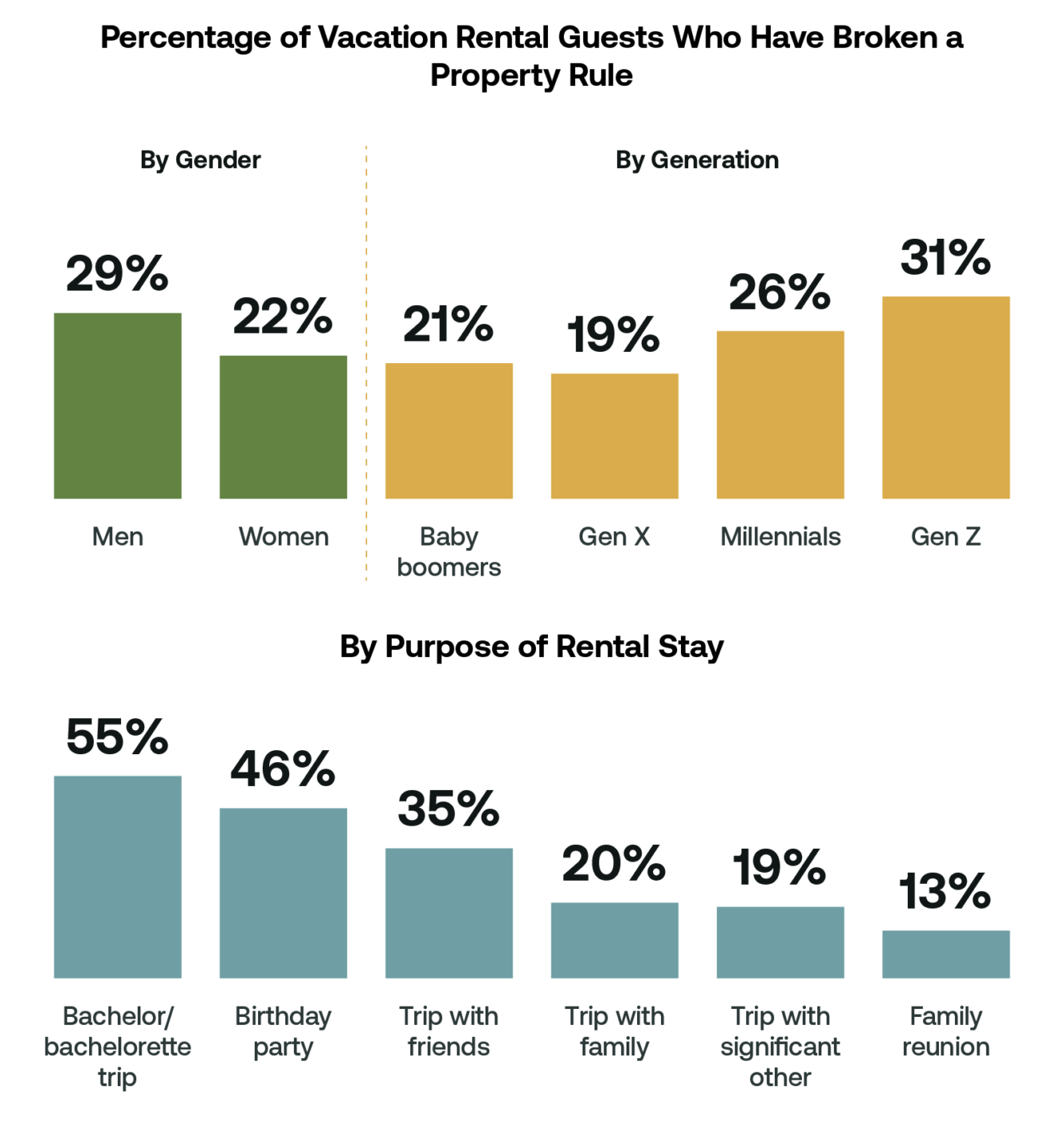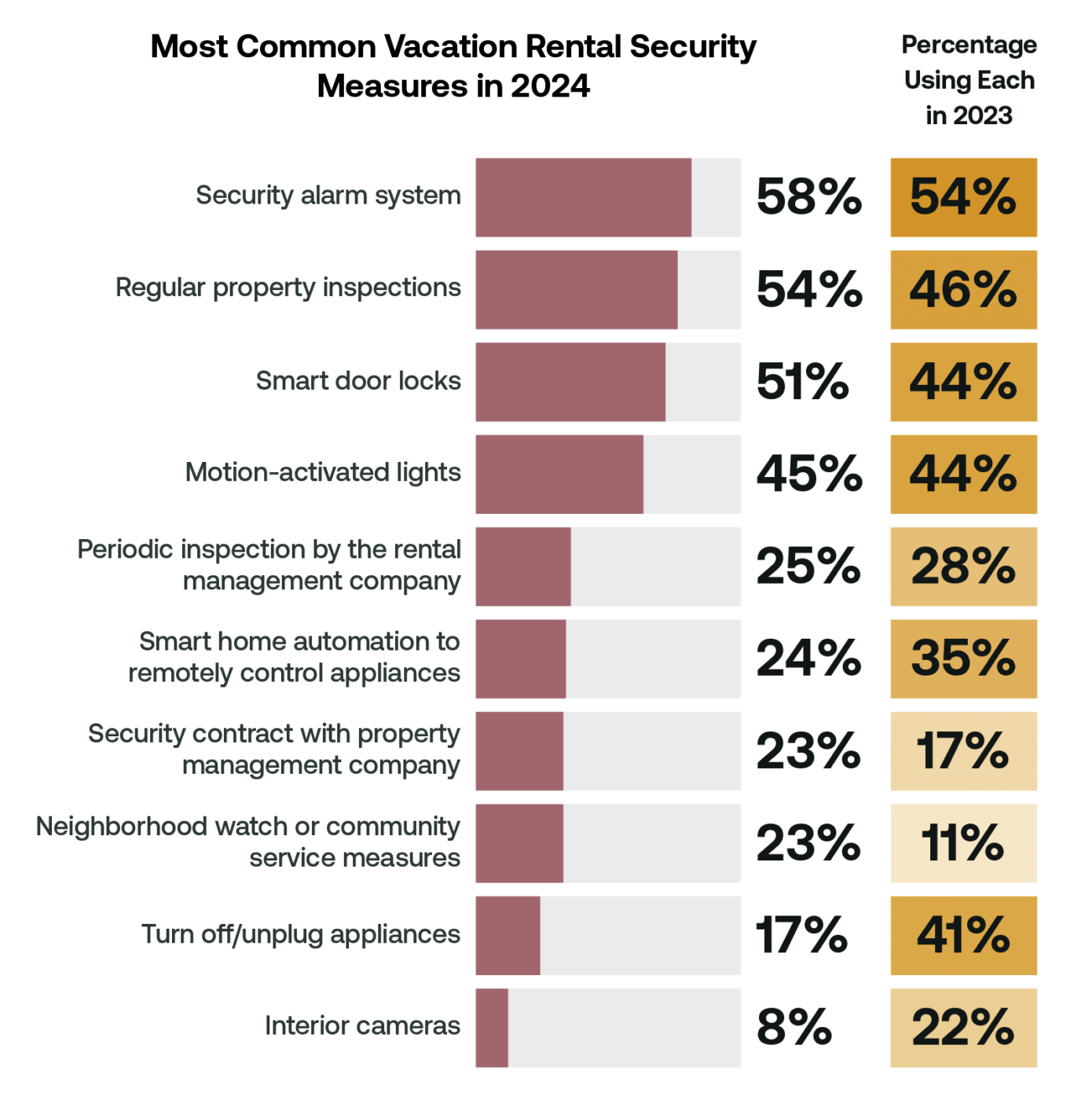- Despite a ban, 1 in 12 vacation rentals still use indoor cameras.
- 3 in 4 guests now routinely check for hidden surveillance.
- 1 in 4 vacation renters admit to breaking rules during their stay, with Gen Z and bachelor/bachelorette parties being frequent offenders.
Last year, we covered the news that holiday rental properties — like those found on Airbnb or VRBO — were increasingly being found to contain hidden cameras inside the property for the apparent purpose of spying on guests. A year later, new data has shown that despite strict bans laid down by the rental platforms, over 1 in 12 owners are still using these cameras.
This statistic is alarming for vacationers looking for peace of mind and privacy while travelling and highlights the ongoing struggle for property owners to balance security, privacy, and profit in their listings. This is still a relatively new subsection of the travel industry and, as a result, is still working through these kinds of teething problems. Many holidaymakers, however, seem to be running out of patience…
Privacy Concerns Proliferate
Platform-based rentals offer greater affordability and personalisation than traditional hotels; this much is pretty indisputable. However, despite the obvious appeal of a ‘home away from home’ setup, it appears that many of these properties do not offer the same levels of seclusion that we expect while staying in our homes. Despite major platforms, including Airbnb, laying down a ban in March this year, hosts continue to roll them out across the rentals.
As a result, more and more guests are taking extra precautions to ensure their safety and privacy during their stay; 3 in 4 said they check for hidden security measures (like cameras) upon arrival. The data also revealed that 5% of vacation renters have encountered hidden cameras during rental property stays. This invasion of privacy can be not only unsettling but is also illegal in some cases. And yet, hidden cameras aren’t the only trend threatening the experience…
Some renters go to great lengths to avoid getting caught breaking rules. The most common method was sneaking items in through alternate entry points besides the front door, with 14% of rule-breakers admitting to this tactic. A few went as far as tampering with security cameras by covering or even disabling them (6% of each). In short, it seems that both parties have a way to go in making the so-called ‘Sharing Economy’ work for everyone.
Related Stories
Rule Breakers and Rules Broken
A quarter of vacation renters admitted to breaking a rule during their most recent stay. In fact, 1 in 3 vacation rental hosts claimed that guest behaviour is consistently on the decline. Gen Z were reportedly the most rebellious guests, with nearly 1 in 3 of these renters having broken the rules during a stay. What comes next may not be a surprise to many, but they aren’t the only ones letting loose… Pre-wedding celebrations can get pretty wild, and according to the vacation rental guests Vivint surveyed, over half of all bachelor and bachelorette parties held on these properties result in broken rules.

Millennials were the age group most likely to try to cover up their vacation rental rule-breaking—and it’s often worked. Most of the time (3 in 4), guests who broke these rules didn’t get caught. It seems their hosts might need better ways to keep an eye on their properties while respecting guests’ privacy.
When rule-breakers did get caught, the most common punishment was a bad review from the host (37%, or about 2 in 5 cases). Negative reviews from hosts can limit a guest’s ability to book vacation rentals in the future. And unfortunately, the same number of rule-breaking guests (37%) had to pay average fines of $178 USD.
What’s Next for Holiday Rentals?
For the second consecutive year, security alarm systems and regular property inspections are still the top ways hosts secure their properties. Meanwhile, using interior cameras in vacation rentals has (thankfully) declined as a result of the aforementioned ban on indoor security cameras.
Financially, the burden of damages from rule-breaking guests has only decreased slightly. In 2023, hosts reported an average expense of $553 USD on these damages, which was slightly reduced to $534 USD in 2024 (a difference of just $19 USD). Investments in security measures have also seen a minor decline of $62 USD annually, falling from $1,437 USD in 2023 to $1,375 USD in 2024.
Maintaining a secure environment undeniably helps hosts protect host properties while maintaining their guests’ well-being. Measures like security alarms and property inspections are key to being a good vacation rental host whose properties guests will want to return to time and again… but this can’t come at the total sacrifice of guest privacy.

The team compiling this data surveyed over 1,000 Americans about their experiences staying in vacation rentals. Among them, 47% were men, 41% were women, and 2% were nonbinary or nonconforming. Additionally, 6% were baby boomers, 23% were Gen X, 54% were millennials, and 17% were Gen Z. Vivint also surveyed 248 vacation rental hosts.
As such, it’s hard to argue with the hard figures in their findings. However, what it’s much easier to argue with is the idea that indoor cameras should ever have — or have had — a place in vacation rentals. While we’re all for keeping a property secure from the outside — travellers don’t want to be on their guard on vacation when they’re supposed to be letting their hair down — guests deserve to be able to enjoy themselves without the fear of constant surveillance. While Airbnb’s ban is great in principle, it seems there’s some way to go on enforcing it…
